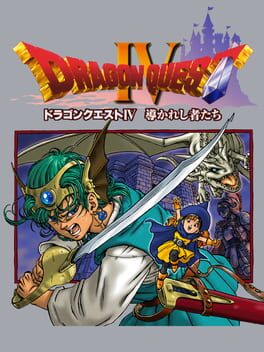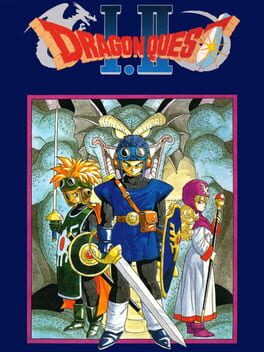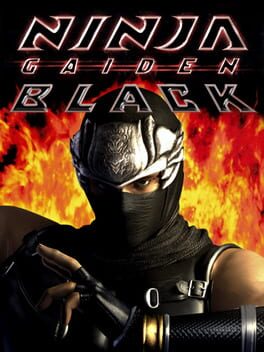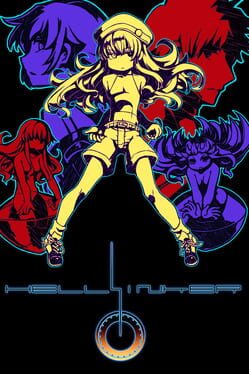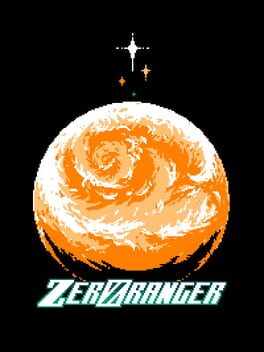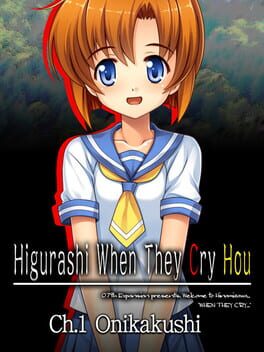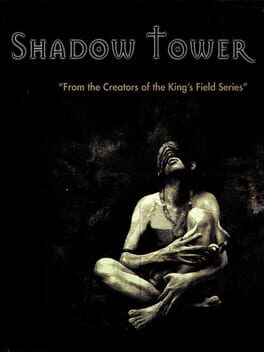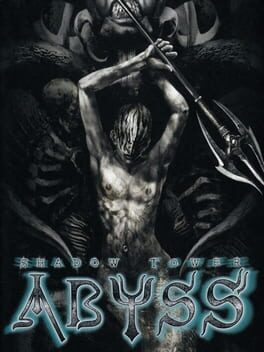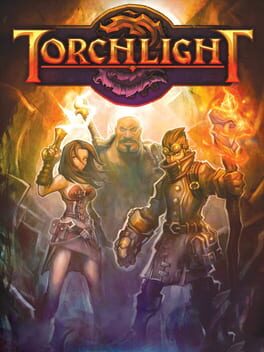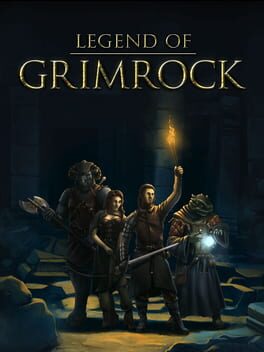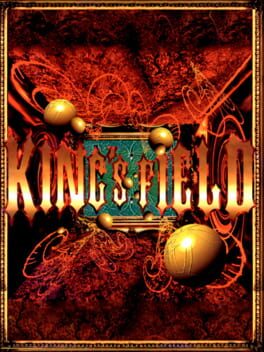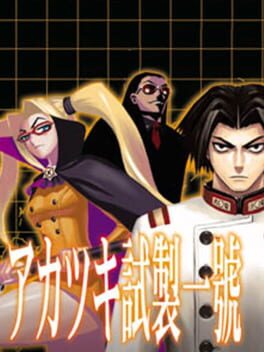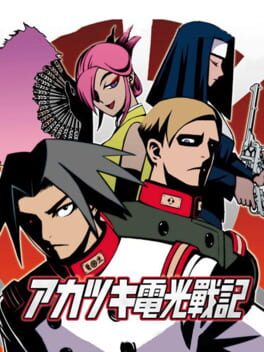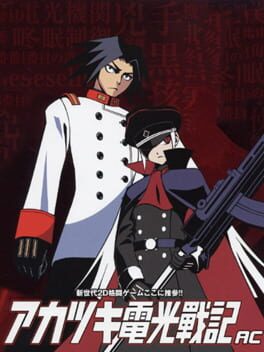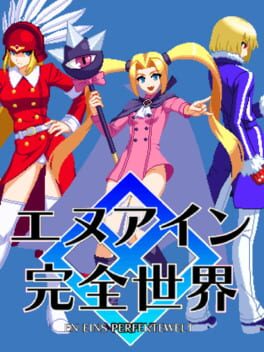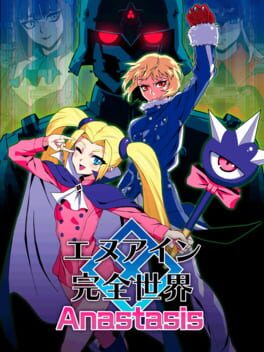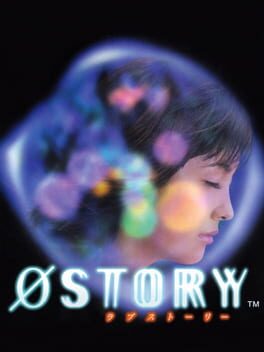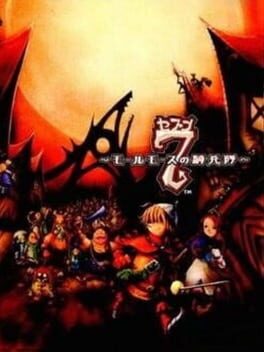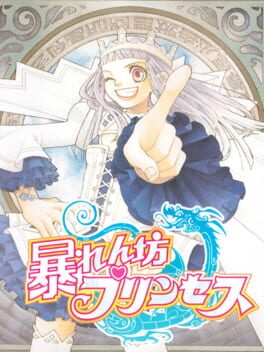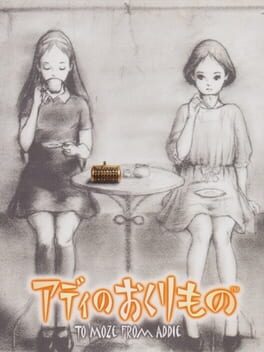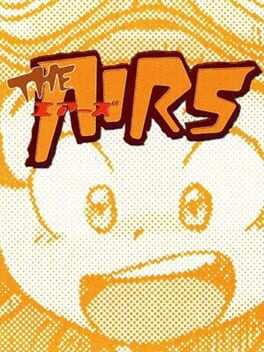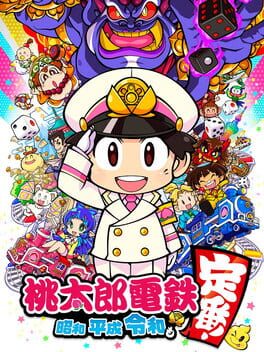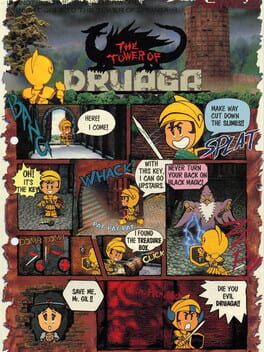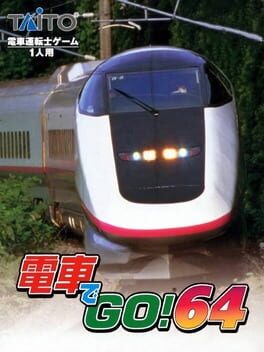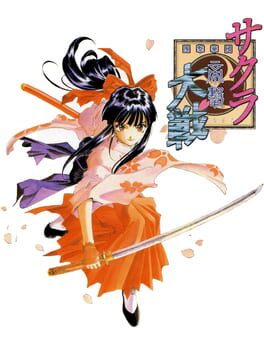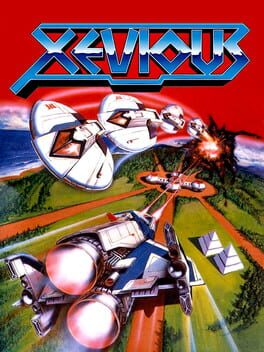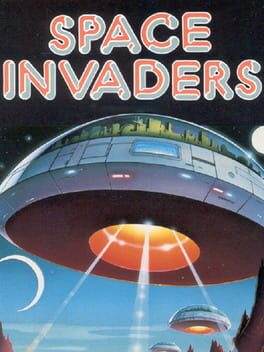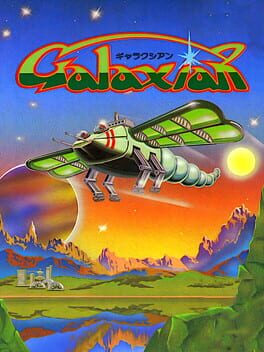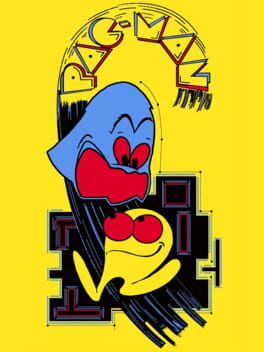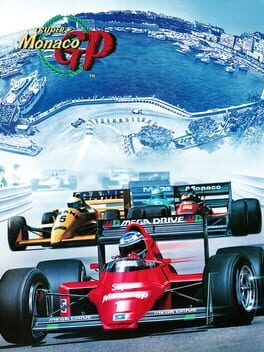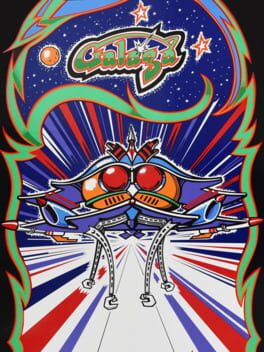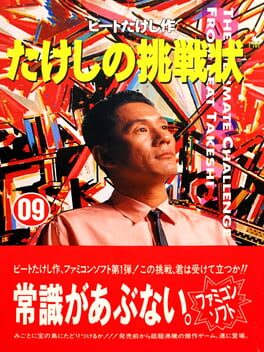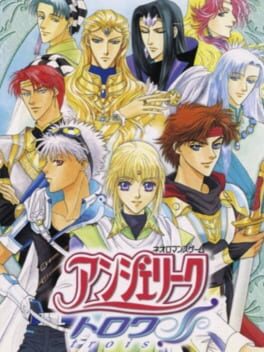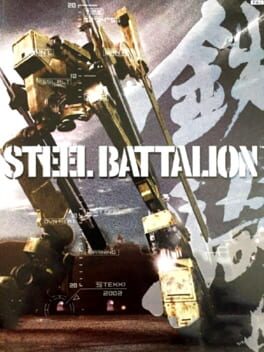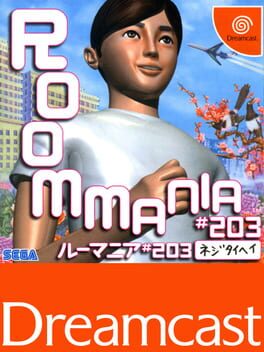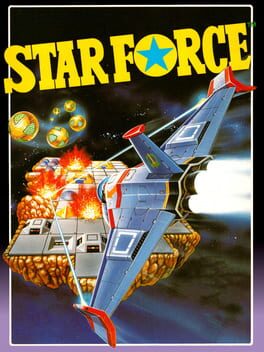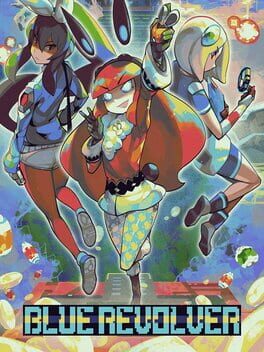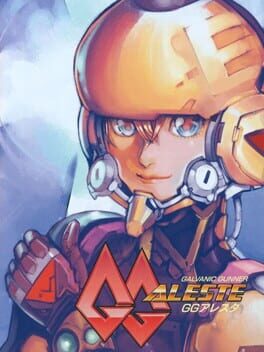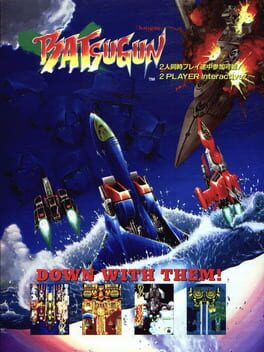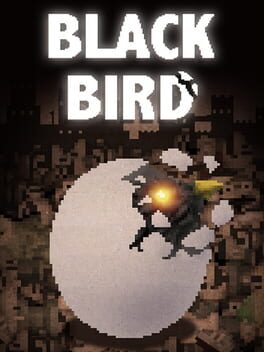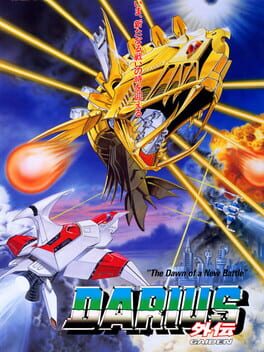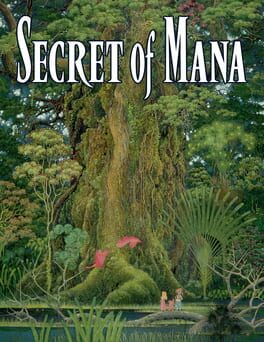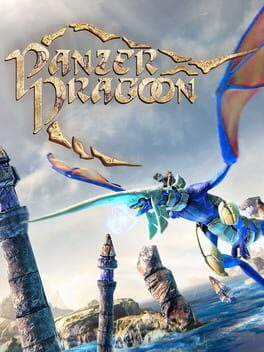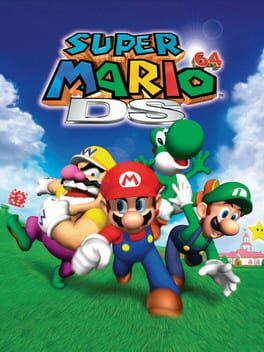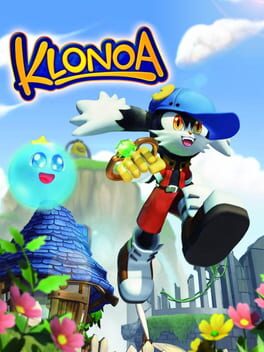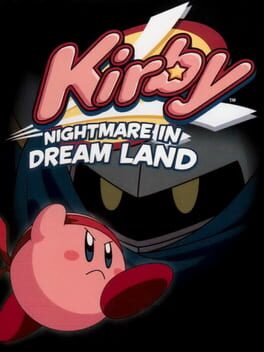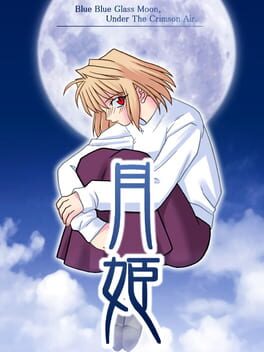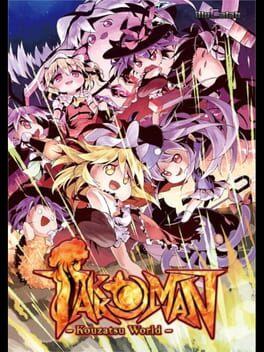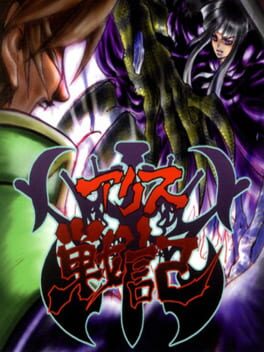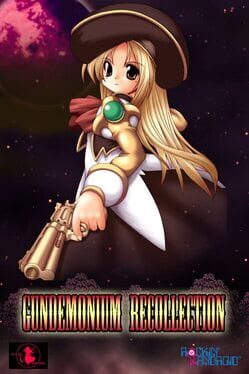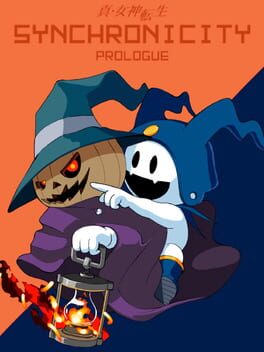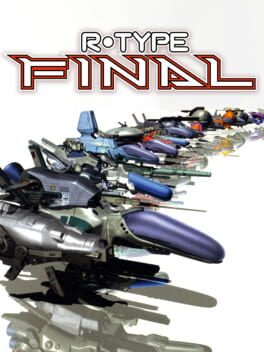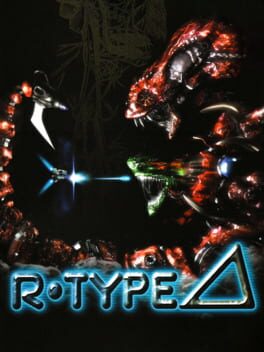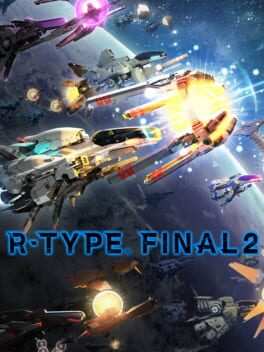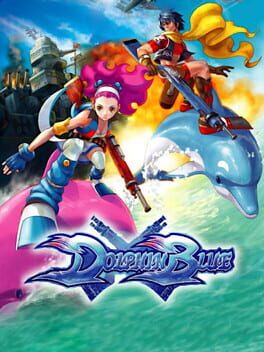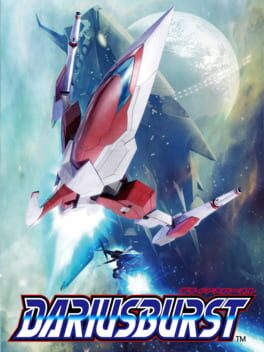26 reviews liked by Dett
Dragon Quest IV
2001
This game needs no introduction, as it is one of the best installments in the Dragon Quest series. This specific version expands and improves the original experience in many ways, being one of my favorite remakes because it doesn't limit itself only with modernized graphics, but also updates and expands a lot of things and obviously also because it's literally as if you merged Dragon Quest VII from PS1 (my favorite DQ) with the original DQIV from NES.
Dragon Quest IV was a turning point in the series. After Dragon Quest III, the franchise had already reached its highest point in that era, and for its fourth installment the series had two paths to choose from, either they reiterated the concept of an open world and made the game even more gigantic and free, or they made the experience more linear, restricting the player from the freedom so characteristic of the first 3 games in order to have an adventure with a tighter design. Dragon Quest IV clearly went for the second option, but as unbelievable as this may sound, this did not sacrifice the sense of adventure that characterizes Dragon Quest, rather, it was enhanced.
Let's cut to the chase, one of the reasons why Dragon Quest IV is one of the strongest installments is because of how its story is divided into chapters. It was a concept that for its time was novel and was something that greatly improved the narrative and world building, but it didn't change the overall structure drastically, it simply served as another way to present the story and gradually teach the gameplay mechanics to the player. Each chapter is good for different reasons:
Chapter 1: Like the game that started it all, Dragon Quest I, this chapter begins with a single character, with a single simple task, in a small place, but teaches enough of the Dragon Quest world to introduce new players. It teaches the basics, such as the importance of talking to NPCs, the cycle of day and night, turn-based battles, the importance of buying equipment, etc.
Chapter 2: Just as chapter 1 could be a tribute to the first Dragon Quest, this one can be considered as the perfect tribute to Dragon Quest II. Here everything is more extensive, now we control 3 members in the party instead of just one, the amount of villages and stories we encounter is greater, and in the same way, the battles start to get more complicated. Here the player learns about the importance of status altering magic and how to strategize in combat.
Chapter 3: Forget for the moment everything you learned in chapter 1 and 2, chapter 3 presents us with a twist to give you control of none other than that character who always sells you weapons and stands behind the counter, a humble merchant. This chapter is great because at first you literally start out as an NPC, but gradually you become a treasure hunter and build up a fortune that becomes almost addictive as you focus on earning more and more money on top of earning experience points. It's a pretty unique and fun chapter.
Chapter 4: I told you to forget everything you learned in chapters 1 and 2, but now you will have to remember them more than ever, because things get more complicated in this chapter and you will need to be very cautious if you don't want to have a bad time. This stage of the story shows how behind the curtain the main antagonist was slowly moving the pieces to execute his plan, and well, it is in this chapter where we see the product of that and how the enemy is already too strong, to the point that the story ends abruptly with a somewhat unfortunate conclusion, which gives way to the last chapter in the story.
As unbelievable as what I'm about to say may seem, chapter 5 could very well be considered a complete game on its own, you could say that's when the real Dragon Quest experience really begins, so it will also be the part where I will structure my review in my more "classic" way.
Chapter 5
Dragon Quest IV is for me the perfect Dragon Quest game. It maintains the purity and sense of adventure of the first three installments, and not only that, but it was the first game in the franchise to prove that in addition to adventure, there can also be a good story to tell.
The story of this game is set in a new world, it is a standalone story in a separate universe from the first three installments so you don't have to worry if you haven't played another game in the franchise before. This time we take the role of a boy with green hair that due to certain events is forced to leave on an odyssey that will take him to meet a noble knight of a distant kingdom, a princess with a lot of courage and momentum and his two faithful guards. A very nice middle-aged gentleman who is a merchant and two twin sisters who seek to avenge their father. They all unite to defeat a greater evil, Psaro, who plans to re-discover the secret of evolution to take revenge against humans.
Yes, the characters I described before are the same ones that starred in the previous chapters, and it's great how they keep their level and items when they join your party in the final chapter, and thanks to the fact that this remake aims to update Dragon Quest IV to put it on par with the seventh installment, we have the party chat that adds much more depth to each character and is a very fun addition because of the types of dialogues you can find while talking to randoms NPCs and makes it even cooler to have these 7 charismatic characters in your party. Yes, maybe this game lacks the customization and class switching that Dragon Quest III gave, but in my opinion, having 8 characters that are distinct from each other and that you can switch between at almost any time is much better and more fun. If you're on the overworld map, you can switch between party members even in the middle of battle and everyone will gain experience even if they didn't participate in the battle, and there are even some dungeons where this is also allowed, which increases the possibilities for strategy and versatility in combat.
One of my favorite moments in the game is when you unite the whole party and the main theme changes. Up to that point each character had their own overworld theme, and I just find it super cool that there is a theme for all the characters together, when Wagon Wheel March plays it's just epic it fills you with power and determination, there is no moment like this in the whole series. And it's strange, but even though the first hours you already saw most of the world, when you get the ship the game manages to make you feel that you still have a lot to discover and the game leaves the linearity aside to give you the freedom to choose at your own choice and pace the order in which you want to explore the world.
At the beginning of the review I mentioned that this game improved exploration over the previous installments in compensation for the more linear structure, so I'll expand on that. For starters, the simple and small, but significant addition of the mini-medals changed the way we see the pots, barrels and closets, as inspecting these objects can always reveal a mini-medal. The great thing about these is that every time you get a certain amount, you will be rewarded with special items that you could not find in common places or stores, such as a sword that regenerates your life when you attack or pieces of extremely strong armor. The mini medals became iconic within the series and became a must-have for every subsequent game. Another thing that was improved were the dialogues of the NPCs, as they are now more fun to read. The villagers also create and spread rumors, you read them and that's what sparks your curiosity and encourages you to explore the world to find out if the things they talk about are really true, and the best thing about this game is that it hides very interesting secrets all over the world, like the sands of time, which allow you to restart battles if you use them as an object in battle, which is extremely useful in occasions where you are losing or when you find metal slimes, or the Liquid metal sword, which is a super strong sword that you can also find by exploring normally, and that's what I like about this game, that the rewards for exploring are really significant and are not limited to potions or ethers which is usually the only thing that dungeons hide in this kind of games. In the review of DQIII I talked about how your curiosity will always be rewarded and in this game that is taken up again and improved to make exploring more entertaining.
In this game we must also make a search for "magic items", but unlike the previous installments where it was just collecting items and these had no utility beyond allowing you to advance in the story, in Dragon Quest IV we have to collect the pieces of the armor of Zenithia, which feels much more rewarding and more interesting, because getting them not only makes you advance in the story, but also makes our main character stronger by giving him exclusive characteristics, such as the Zenithian Helm that increases immunity to paralysis and sleep, or the Zenithian Sword that when used as an object in battle activates the ability to take away the enemies' status upgrades and plays a fundamental role in the final battle. And overall, rather than feeling like a collection of towns and kingdoms, everything in the world of Dragon Quest IV feels more "alive" and connected, which was strange to see in older games and is something I really like about this particular game. Another factor that helps a lot is that although the game does not tell you where to go, the world and its secrets are designed in such a way that a guide is not necessary at any time to complete the game, which for me is a great improvement over the first games.
The graphic style is taken from DQVII, although a little more polished, and even though it's not the best of PS1, it's definitely one of my favorites for combining 2D pixel art sprites with 3D environments and giving you the possibility to rotate the camera.. As for the OST of this game, I can only say that it is exceptional and is one of my favorites. I think it was in this game that Koichi Sugiyama finally managed to compose even better songs. In general terms, I think this game doesn't have a single bad song, I know that here my personal taste comes into play a lot, but the songs in this game are very good. Without a doubt one of my favorite themes is the ship theme... I simply adore it and it touches my soul every time I listen to it. The town theme is simple, cheerful and always puts me in a good mood, it's also very catchy that I've even heard my parents and brother whistling it from time to time haha. The credits theme always touches my heart and makes me miss all those adventures I lived with this game, the first time I heard it made me feel melancholy certainly... And to tell the truth I could be much longer talking about the music, but that's not the point of the review.
This is simply a magnificent remake, it expands the soundtrack, improves the graphics, adds quality of life improvements like the bag, adds post-game with additional content and an alternate ending that resolves some loose ends and makes the ending happier (although personally I prefer the original ending), adds the party chat and changes that in chapter 5 you can control all the characters, unlike the original version where all except for the hero were controlled by an AI. Heartbeat really put a lot of dedication to the Dragon Quest games they developed and I guess it was such a case that they ended up burnt out and closed the company after the release of this game even though these games were a success in sales. A pity, because after Dragon Quest III for SFC and Dragon Quest IV for PS1 there were no more remakes that had so much attention to detail and that were released on home consoles (with the exception of the PS2 remake of Dragon Quest V, which is also excellent and made with a lot of dedication.).
Conclusion
And what else is left to say? It's one of the games I enjoy the most, it has a very good story with an interesting (if a bit tragic) protagonist and villain, an OST that I can't get out of my head because of how excellent it is, and frankly it's also one of my all-time favorites. It's simply a game that resonates with me a lot and is the first one that comes to mind when it comes to recommending a game in this series.
Undoubtedly its greatness is due to Dragon Quest III, even so, it is a game that manages to be extraordinary by its own merit thanks to the evolutions that it presented, which improved the way in which these games were designed. Dragon Quest III shaped the classic Dragon Quest formula, but it was Dragon Quest IV that perfected it.
Additional comment related to the review:
I hope that someday this game will get a translation patch by fans or a new remake, because the DS version has cut the party chat, and the only full version is the mobile one, but playing on mobile doesn't appeal to me. Even with everything, it was worth playing this game in Japanese, I think it became my favorite version of the game, although I do not recommend it.
← Dragon Quest III: The Seeds of Salvation - Review
→ Dragon Quest V: Hand of the Heavenly Bride - Review
Dragon Quest IV was a turning point in the series. After Dragon Quest III, the franchise had already reached its highest point in that era, and for its fourth installment the series had two paths to choose from, either they reiterated the concept of an open world and made the game even more gigantic and free, or they made the experience more linear, restricting the player from the freedom so characteristic of the first 3 games in order to have an adventure with a tighter design. Dragon Quest IV clearly went for the second option, but as unbelievable as this may sound, this did not sacrifice the sense of adventure that characterizes Dragon Quest, rather, it was enhanced.
Let's cut to the chase, one of the reasons why Dragon Quest IV is one of the strongest installments is because of how its story is divided into chapters. It was a concept that for its time was novel and was something that greatly improved the narrative and world building, but it didn't change the overall structure drastically, it simply served as another way to present the story and gradually teach the gameplay mechanics to the player. Each chapter is good for different reasons:
Chapter 1: Like the game that started it all, Dragon Quest I, this chapter begins with a single character, with a single simple task, in a small place, but teaches enough of the Dragon Quest world to introduce new players. It teaches the basics, such as the importance of talking to NPCs, the cycle of day and night, turn-based battles, the importance of buying equipment, etc.
Chapter 2: Just as chapter 1 could be a tribute to the first Dragon Quest, this one can be considered as the perfect tribute to Dragon Quest II. Here everything is more extensive, now we control 3 members in the party instead of just one, the amount of villages and stories we encounter is greater, and in the same way, the battles start to get more complicated. Here the player learns about the importance of status altering magic and how to strategize in combat.
Chapter 3: Forget for the moment everything you learned in chapter 1 and 2, chapter 3 presents us with a twist to give you control of none other than that character who always sells you weapons and stands behind the counter, a humble merchant. This chapter is great because at first you literally start out as an NPC, but gradually you become a treasure hunter and build up a fortune that becomes almost addictive as you focus on earning more and more money on top of earning experience points. It's a pretty unique and fun chapter.
Chapter 4: I told you to forget everything you learned in chapters 1 and 2, but now you will have to remember them more than ever, because things get more complicated in this chapter and you will need to be very cautious if you don't want to have a bad time. This stage of the story shows how behind the curtain the main antagonist was slowly moving the pieces to execute his plan, and well, it is in this chapter where we see the product of that and how the enemy is already too strong, to the point that the story ends abruptly with a somewhat unfortunate conclusion, which gives way to the last chapter in the story.
As unbelievable as what I'm about to say may seem, chapter 5 could very well be considered a complete game on its own, you could say that's when the real Dragon Quest experience really begins, so it will also be the part where I will structure my review in my more "classic" way.
Chapter 5
Dragon Quest IV is for me the perfect Dragon Quest game. It maintains the purity and sense of adventure of the first three installments, and not only that, but it was the first game in the franchise to prove that in addition to adventure, there can also be a good story to tell.
The story of this game is set in a new world, it is a standalone story in a separate universe from the first three installments so you don't have to worry if you haven't played another game in the franchise before. This time we take the role of a boy with green hair that due to certain events is forced to leave on an odyssey that will take him to meet a noble knight of a distant kingdom, a princess with a lot of courage and momentum and his two faithful guards. A very nice middle-aged gentleman who is a merchant and two twin sisters who seek to avenge their father. They all unite to defeat a greater evil, Psaro, who plans to re-discover the secret of evolution to take revenge against humans.
Yes, the characters I described before are the same ones that starred in the previous chapters, and it's great how they keep their level and items when they join your party in the final chapter, and thanks to the fact that this remake aims to update Dragon Quest IV to put it on par with the seventh installment, we have the party chat that adds much more depth to each character and is a very fun addition because of the types of dialogues you can find while talking to randoms NPCs and makes it even cooler to have these 7 charismatic characters in your party. Yes, maybe this game lacks the customization and class switching that Dragon Quest III gave, but in my opinion, having 8 characters that are distinct from each other and that you can switch between at almost any time is much better and more fun. If you're on the overworld map, you can switch between party members even in the middle of battle and everyone will gain experience even if they didn't participate in the battle, and there are even some dungeons where this is also allowed, which increases the possibilities for strategy and versatility in combat.
One of my favorite moments in the game is when you unite the whole party and the main theme changes. Up to that point each character had their own overworld theme, and I just find it super cool that there is a theme for all the characters together, when Wagon Wheel March plays it's just epic it fills you with power and determination, there is no moment like this in the whole series. And it's strange, but even though the first hours you already saw most of the world, when you get the ship the game manages to make you feel that you still have a lot to discover and the game leaves the linearity aside to give you the freedom to choose at your own choice and pace the order in which you want to explore the world.
At the beginning of the review I mentioned that this game improved exploration over the previous installments in compensation for the more linear structure, so I'll expand on that. For starters, the simple and small, but significant addition of the mini-medals changed the way we see the pots, barrels and closets, as inspecting these objects can always reveal a mini-medal. The great thing about these is that every time you get a certain amount, you will be rewarded with special items that you could not find in common places or stores, such as a sword that regenerates your life when you attack or pieces of extremely strong armor. The mini medals became iconic within the series and became a must-have for every subsequent game. Another thing that was improved were the dialogues of the NPCs, as they are now more fun to read. The villagers also create and spread rumors, you read them and that's what sparks your curiosity and encourages you to explore the world to find out if the things they talk about are really true, and the best thing about this game is that it hides very interesting secrets all over the world, like the sands of time, which allow you to restart battles if you use them as an object in battle, which is extremely useful in occasions where you are losing or when you find metal slimes, or the Liquid metal sword, which is a super strong sword that you can also find by exploring normally, and that's what I like about this game, that the rewards for exploring are really significant and are not limited to potions or ethers which is usually the only thing that dungeons hide in this kind of games. In the review of DQIII I talked about how your curiosity will always be rewarded and in this game that is taken up again and improved to make exploring more entertaining.
In this game we must also make a search for "magic items", but unlike the previous installments where it was just collecting items and these had no utility beyond allowing you to advance in the story, in Dragon Quest IV we have to collect the pieces of the armor of Zenithia, which feels much more rewarding and more interesting, because getting them not only makes you advance in the story, but also makes our main character stronger by giving him exclusive characteristics, such as the Zenithian Helm that increases immunity to paralysis and sleep, or the Zenithian Sword that when used as an object in battle activates the ability to take away the enemies' status upgrades and plays a fundamental role in the final battle. And overall, rather than feeling like a collection of towns and kingdoms, everything in the world of Dragon Quest IV feels more "alive" and connected, which was strange to see in older games and is something I really like about this particular game. Another factor that helps a lot is that although the game does not tell you where to go, the world and its secrets are designed in such a way that a guide is not necessary at any time to complete the game, which for me is a great improvement over the first games.
The graphic style is taken from DQVII, although a little more polished, and even though it's not the best of PS1, it's definitely one of my favorites for combining 2D pixel art sprites with 3D environments and giving you the possibility to rotate the camera.. As for the OST of this game, I can only say that it is exceptional and is one of my favorites. I think it was in this game that Koichi Sugiyama finally managed to compose even better songs. In general terms, I think this game doesn't have a single bad song, I know that here my personal taste comes into play a lot, but the songs in this game are very good. Without a doubt one of my favorite themes is the ship theme... I simply adore it and it touches my soul every time I listen to it. The town theme is simple, cheerful and always puts me in a good mood, it's also very catchy that I've even heard my parents and brother whistling it from time to time haha. The credits theme always touches my heart and makes me miss all those adventures I lived with this game, the first time I heard it made me feel melancholy certainly... And to tell the truth I could be much longer talking about the music, but that's not the point of the review.
This is simply a magnificent remake, it expands the soundtrack, improves the graphics, adds quality of life improvements like the bag, adds post-game with additional content and an alternate ending that resolves some loose ends and makes the ending happier (although personally I prefer the original ending), adds the party chat and changes that in chapter 5 you can control all the characters, unlike the original version where all except for the hero were controlled by an AI. Heartbeat really put a lot of dedication to the Dragon Quest games they developed and I guess it was such a case that they ended up burnt out and closed the company after the release of this game even though these games were a success in sales. A pity, because after Dragon Quest III for SFC and Dragon Quest IV for PS1 there were no more remakes that had so much attention to detail and that were released on home consoles (with the exception of the PS2 remake of Dragon Quest V, which is also excellent and made with a lot of dedication.).
Conclusion
And what else is left to say? It's one of the games I enjoy the most, it has a very good story with an interesting (if a bit tragic) protagonist and villain, an OST that I can't get out of my head because of how excellent it is, and frankly it's also one of my all-time favorites. It's simply a game that resonates with me a lot and is the first one that comes to mind when it comes to recommending a game in this series.
Undoubtedly its greatness is due to Dragon Quest III, even so, it is a game that manages to be extraordinary by its own merit thanks to the evolutions that it presented, which improved the way in which these games were designed. Dragon Quest III shaped the classic Dragon Quest formula, but it was Dragon Quest IV that perfected it.
Additional comment related to the review:
I hope that someday this game will get a translation patch by fans or a new remake, because the DS version has cut the party chat, and the only full version is the mobile one, but playing on mobile doesn't appeal to me. Even with everything, it was worth playing this game in Japanese, I think it became my favorite version of the game, although I do not recommend it.
← Dragon Quest III: The Seeds of Salvation - Review
→ Dragon Quest V: Hand of the Heavenly Bride - Review
Dragon Quest I.II
1993
My favorite version of Dragon Quest I and II. I like it a lot as it updates these two games using the DQV engine for SFC, it also balances and modernizes them a bit, but I think it's mostly because I really like the feeling of playing a good Super Nintendo game :) Be that as it may, I'd like to talk about these 2 games in depth, so this time I'll do a double review.
- Dragon Quest -
The birth of a legendary franchise. The first Dragon Quest, certainly is a memorable game and an enjoyable experience, but it is also a very archaic and rudimentary game.
In this game we only control one character in the entire adventure, which results in rather simplistic and a bit boring combat to be perfectly honest, however, the magic of the first Dragon Quest lies not in its combat, but in its great little sense of adventure and its interesting world full of mysteries.
We start the adventure with a single simple mission; defeat the evil Dragonlord, and that is the only clear objective we are given at the beginning, as the game invites us to be ourselves the ones to explore and discover more of its world. The first time I played this game, something as simple and as ambiguous as that was just what I needed, and I'm not exaggerating. I came with the idea that RPGs were just about following a relatively linear story and learning complex systems that at some point had to get good and interesting, and that to me sounded like a pretty long process, and more considering how slow RPGs are (ironically nowadays I think the opposite and I recognize that it was a very closed view, but I still think that giving freedom to the player is something important).
So playing this game I was quite intrigued and pleased to explore the world, without having a really clear and established path, having that freedom was really important, I loved getting lost in the world and discovering it on my own. Something important about Dragon Quest's design is that losing a battle doesn't mean game over, but the game will always give you a second chance, you will keep the whole experience and the only real penalty of a defeat is losing half of your money. A deal that I consider more than fair, as it meant to me that I could make a mistake without fear of wasting my time, and compared to other games of the time, these on the other hand would return you to the last save point or directly to the beginning of the game erasing all your progress.
Exploring the world, every time I met an NPC and they would tell me a hint or a tip, I remember to write it down in a notebook so I wouldn't forget it. I even drew some of the dungeon maps that were there because in this game the caves are kind of confusing and have no light, so making something to help orient you is very helpful. I really liked this as it somehow added to that sense of mystery and adventure, and most of all immersion. Eventually I had to consult a guide as there are items you get with clues that are very ambiguous, like the mark of erdrick. But still, I think what an average player can discover on his own is considerable, unlike games like Zelda 1 and 2 or Castlevania 2, where a guide is more necessary.
The music by Koichi Sugiyama is decent, but nothing out of the ordinary, I have to say that the battle theme doesn't appeal to me and it's something you'll hear very often. However, it was here that one of the most legendary and iconic themes in the world of video games was born and a personal favorite that whenever I listen to it transports me to a world full of fantasy and adventure.
Conclusion
The game that started it all, with a rather humble proposal even for its time, but that was a great success in the history of video games to simplify the hitherto very complex RPG and be the first of its kind to be in a home console. I'm not exaggerating when I say that up until then Famicom and NES games had barely any text and story within the game, but DQ was the first to offer such an amount of text and personality through it.
- Dragon Quest II -
Dragon Quest II is an open world RPG that was a giant step forward in terms of everything for the series. Although the game has some problems, on the other hand, it is what I consider to be the true first JRPG in form and the "blueprint" that all JRPGs at the time would try to emulate.
But well, let's start from the beginning. The story is still almost as simple as in the previous game, but at least in this game we already have an introductory cinematic that gives us more motivation to stop the villain, still, that and meeting the other heroes are the only major events that happen in the whole game, so don't expect much in that sense.
Once again, what captivates me and what I love about this game is its large world to explore and the sense of adventure it generates. I really like how the world is gigantic and so open from the start and you can traverse a lot of it in any order you want once you get the ship. It really is a great expansion and improvement on the first title, and the large world to explore gives you a great sense of adventure, and exploring by ship is just enjoyable. One aspect that I really like is how every time you get a different key many previously inaccessible paths open up, it makes many places that at first seemed unimportant get a new meaning, often being like a kind of reward for the player for remembering those places and staying curious. There are many things that you can discover on your own, however, there are a lot of other things that are achieved in very specific ways that with the ambiguous clues given by the NPCs will not be enough to deduce it, so you will need a guide at certain points.
The combats follow the same bases of the previous installment, but it evolves and becomes really interesting by introducing for the first time a party! That will consist of a warrior and 2 mages, which greatly improves the combat system compared to the previous DQ. However, another big flaw that Dragon Quest II has is how frustrating it can feel because of how unbalanced it can be sometimes, because now the enemies also come in groups and some have annoying attacks, and many times the groups are big, but the main reason is that only our hero can equip himself with good weaponry, while the two mages will have to make do with barely decent equipment, or the fact that getting items that recover MP is very difficult. Although to be honest, it's not as terrible as people paint it. I highly recommend withdrawing from the dungeons when you run out of MP or feel that you are not going to overcome it, I also recommend in combat to use more the "Defense" command and spells that alter states to make the battles more manageable, as I feel that only the final dungeons of the game are the difficult part of this and those that will require grinding.
The first DQ had nice tunes, I would say barely decent, but this is where I think I fell in love with DQ's music. Although the amount of songs is few, they complement the game very well and give it a certain charm, I especially like the town theme, the first overworld theme and the credits theme. The credits theme is without a doubt still to this day one of my favorite (if not my favorite) ending songs in video games.
Conclusion
This game already feels more like a proper JRPG, whereas the first DQ felt like a failed attempt at that as far as the combat system is concerned. The world is vastly larger and more entertaining to explore, the music is of outstanding quality, the combat is much more interesting and the variety of monsters is vastly expanded. The difficulty and how ambiguous it can be are pretty notable flaws, but I'm sure no one here plays NES games without a guide, so that's more a characteristic of all adventure games of the era rather than being a unique flaw of DQII.
It's often looked down upon because people think that after the first DQ, the obvious and direct evolution would be a game like the first Final Fantasy or Dragon Quest III, but I think people forget that those two games are just Dragon Quest II, but refined, as the game that really cemented and laid most of the groundwork for the JRPG genre and all future titles in the series (and even Final Fantasy), is this one.
Double Conclusion
This was my "official" entry playing the Dragon Quest franchise, and that time I played these games years ago, my interest in Dragon Quest became very strong, and I'm glad I stayed there to have discovered DQ in full and see its evolution from its roots, I think it's something that was extremely worthwhile.
Yeah, maybe they are bad games nowadays, that's why I gave them such a low rating, but for me they are great games and true classics, that if it were up to me, I would rate them a 9/10.
Through the simplest and most primitive, the charm and simplicity of the early Dragon Quests brought back my interest in RPGs, and that's something I'll always remember and is the reason I'm grateful for these two titles. Undoubtedly important games that contributed significantly in making me the player I am today.
→ Dragon Quest III: The Seeds of Salvation - Review
- Dragon Quest -
The birth of a legendary franchise. The first Dragon Quest, certainly is a memorable game and an enjoyable experience, but it is also a very archaic and rudimentary game.
In this game we only control one character in the entire adventure, which results in rather simplistic and a bit boring combat to be perfectly honest, however, the magic of the first Dragon Quest lies not in its combat, but in its great little sense of adventure and its interesting world full of mysteries.
We start the adventure with a single simple mission; defeat the evil Dragonlord, and that is the only clear objective we are given at the beginning, as the game invites us to be ourselves the ones to explore and discover more of its world. The first time I played this game, something as simple and as ambiguous as that was just what I needed, and I'm not exaggerating. I came with the idea that RPGs were just about following a relatively linear story and learning complex systems that at some point had to get good and interesting, and that to me sounded like a pretty long process, and more considering how slow RPGs are (ironically nowadays I think the opposite and I recognize that it was a very closed view, but I still think that giving freedom to the player is something important).
So playing this game I was quite intrigued and pleased to explore the world, without having a really clear and established path, having that freedom was really important, I loved getting lost in the world and discovering it on my own. Something important about Dragon Quest's design is that losing a battle doesn't mean game over, but the game will always give you a second chance, you will keep the whole experience and the only real penalty of a defeat is losing half of your money. A deal that I consider more than fair, as it meant to me that I could make a mistake without fear of wasting my time, and compared to other games of the time, these on the other hand would return you to the last save point or directly to the beginning of the game erasing all your progress.
Exploring the world, every time I met an NPC and they would tell me a hint or a tip, I remember to write it down in a notebook so I wouldn't forget it. I even drew some of the dungeon maps that were there because in this game the caves are kind of confusing and have no light, so making something to help orient you is very helpful. I really liked this as it somehow added to that sense of mystery and adventure, and most of all immersion. Eventually I had to consult a guide as there are items you get with clues that are very ambiguous, like the mark of erdrick. But still, I think what an average player can discover on his own is considerable, unlike games like Zelda 1 and 2 or Castlevania 2, where a guide is more necessary.
The music by Koichi Sugiyama is decent, but nothing out of the ordinary, I have to say that the battle theme doesn't appeal to me and it's something you'll hear very often. However, it was here that one of the most legendary and iconic themes in the world of video games was born and a personal favorite that whenever I listen to it transports me to a world full of fantasy and adventure.
Conclusion
The game that started it all, with a rather humble proposal even for its time, but that was a great success in the history of video games to simplify the hitherto very complex RPG and be the first of its kind to be in a home console. I'm not exaggerating when I say that up until then Famicom and NES games had barely any text and story within the game, but DQ was the first to offer such an amount of text and personality through it.
- Dragon Quest II -
Dragon Quest II is an open world RPG that was a giant step forward in terms of everything for the series. Although the game has some problems, on the other hand, it is what I consider to be the true first JRPG in form and the "blueprint" that all JRPGs at the time would try to emulate.
But well, let's start from the beginning. The story is still almost as simple as in the previous game, but at least in this game we already have an introductory cinematic that gives us more motivation to stop the villain, still, that and meeting the other heroes are the only major events that happen in the whole game, so don't expect much in that sense.
Once again, what captivates me and what I love about this game is its large world to explore and the sense of adventure it generates. I really like how the world is gigantic and so open from the start and you can traverse a lot of it in any order you want once you get the ship. It really is a great expansion and improvement on the first title, and the large world to explore gives you a great sense of adventure, and exploring by ship is just enjoyable. One aspect that I really like is how every time you get a different key many previously inaccessible paths open up, it makes many places that at first seemed unimportant get a new meaning, often being like a kind of reward for the player for remembering those places and staying curious. There are many things that you can discover on your own, however, there are a lot of other things that are achieved in very specific ways that with the ambiguous clues given by the NPCs will not be enough to deduce it, so you will need a guide at certain points.
The combats follow the same bases of the previous installment, but it evolves and becomes really interesting by introducing for the first time a party! That will consist of a warrior and 2 mages, which greatly improves the combat system compared to the previous DQ. However, another big flaw that Dragon Quest II has is how frustrating it can feel because of how unbalanced it can be sometimes, because now the enemies also come in groups and some have annoying attacks, and many times the groups are big, but the main reason is that only our hero can equip himself with good weaponry, while the two mages will have to make do with barely decent equipment, or the fact that getting items that recover MP is very difficult. Although to be honest, it's not as terrible as people paint it. I highly recommend withdrawing from the dungeons when you run out of MP or feel that you are not going to overcome it, I also recommend in combat to use more the "Defense" command and spells that alter states to make the battles more manageable, as I feel that only the final dungeons of the game are the difficult part of this and those that will require grinding.
The first DQ had nice tunes, I would say barely decent, but this is where I think I fell in love with DQ's music. Although the amount of songs is few, they complement the game very well and give it a certain charm, I especially like the town theme, the first overworld theme and the credits theme. The credits theme is without a doubt still to this day one of my favorite (if not my favorite) ending songs in video games.
Conclusion
This game already feels more like a proper JRPG, whereas the first DQ felt like a failed attempt at that as far as the combat system is concerned. The world is vastly larger and more entertaining to explore, the music is of outstanding quality, the combat is much more interesting and the variety of monsters is vastly expanded. The difficulty and how ambiguous it can be are pretty notable flaws, but I'm sure no one here plays NES games without a guide, so that's more a characteristic of all adventure games of the era rather than being a unique flaw of DQII.
It's often looked down upon because people think that after the first DQ, the obvious and direct evolution would be a game like the first Final Fantasy or Dragon Quest III, but I think people forget that those two games are just Dragon Quest II, but refined, as the game that really cemented and laid most of the groundwork for the JRPG genre and all future titles in the series (and even Final Fantasy), is this one.
Double Conclusion
This was my "official" entry playing the Dragon Quest franchise, and that time I played these games years ago, my interest in Dragon Quest became very strong, and I'm glad I stayed there to have discovered DQ in full and see its evolution from its roots, I think it's something that was extremely worthwhile.
Yeah, maybe they are bad games nowadays, that's why I gave them such a low rating, but for me they are great games and true classics, that if it were up to me, I would rate them a 9/10.
Through the simplest and most primitive, the charm and simplicity of the early Dragon Quests brought back my interest in RPGs, and that's something I'll always remember and is the reason I'm grateful for these two titles. Undoubtedly important games that contributed significantly in making me the player I am today.
→ Dragon Quest III: The Seeds of Salvation - Review
Ninja Gaiden Black
2005
Uma coisa que sempre tive interesse era em me aprofundar mais em jogos de ação, especialmente em sua estrutura e sistema de combate, e sinto que Ninja Gaiden foi a escolha perfeita para isso. É um jogo que faz o básico com perfeição, cada encontro exige um uso inteligente de seu kit e são preenchidos por micro-decisões interessantes de se fazer durante a gameplay, desde o uso de outros inimigos a seu favor, pela administração do sistema de essência, até aproveitar dos iframes, que boa parte do jogo vão ser seu maior recurso defensivo, já que os inimigos são ágeis e agarram o Ryu constantemente. Além disso, o jogo é bem conciso e bem cadenciado e que consegue mesclar muito bem sua parte aventura com sua parte ação - até certo ponto. Ironicamente por mais que o jogo tenha uma base muito sólida e se segure muito bem boa parte do tempo, quando ele decai, a queda é abismal, ele nunca fica no medíocre; ou é muito bom, ou é muito ruim. Sério, tem partes nesse jogo que são insuportáveis, são corredores com alguns dos piores inimigos que já vi em um videogame e que parecem que vão ativamente contra todos os sistemas do jogo, além das próprias boss fights, que por mais que sejam boas no começo, quase todas as outras são péssimas e são quase uma antítese ao design dos inimigos comuns do jogo. Mesmo assim, o brilho do jogo não é apagado por isso, e continua sendo uma experiência extremamente gratificante e memorável, já que mesmo em seus piores momentos, ainda há algo a se extrair daquilo, e traz uma perspectiva interessante sobre os próprios sistemas do jogo.
HellSinker
2007
Voivod is my favorite band ever. While their whole discography is awash with greatness, the run of 1987's Killing Technology, 1988's Dimension Hatross, and 1989's Nothingface is unreal. The band took its otherworldly cold-metal dystopian phantasmagoria vision, spearheaded by guitarist Piggy's signature bizarre dissonant riffs, and channeled it through 3 masterpiece albums that each feel distinct yet interconnected, breaking new ground with a deftness that makes it seem trodden a thousand times before.
When thinking about Hellsinker, I am struck with the same sense of awe. Hellsinker, impossibly, manages to be both wildly experimental and meticulously refined, bursting with new ideas yet grounded in strong fundamentals. Made by a single person over years of hard work, but that's the cost: something of this nature can only exist in a compact idea-space, and an individual's mind is the most compact of all.
I hesitate to talk about the mechanics too much, because the process of discovery is so core to the game's soul, but I'll mention a couple as both a cross-section and to entice you.
One of the game's main mechanics is the suppression field, a small aura that appears when you aren't using your main shot and slows down nearby bullets. In contrast to rounded bullets though, pointy-looking bullets are slowed down less, or not at all. And an interesting and deadly emergent property is how slowing bullets causes them to clump up together, suddenly denying you space and breaking a pattern's natural symmetry. Hellsinker takes these as an opportunity to construct frenetic patterns of push-and-pull between player offense, space control, and dodging, and flicks them on and off with whiplash pacing.
Like many shmups, some enemies will be blocked from firing if you are close enough. But unlike almost all other shmups, touching an enemy won't kill you, but instead bounce you away erratically. These two factors, combined with most characters having some sort of melee ability, make Hellsinker one of the most aggressive shmups I've ever played. Like when locking-on in Crimzon Clover, knowing when to get up in somebody's face vs. when to back off is a critical skill. But instead of the calculating sound of "click-click-click," it's a rusty knife rushdown, standing in stark contrast to the game's alien aesthetic and evoking the same electrifying chemical reaction between cold metal and fiery aggression that Voivod harnesses in their music.
Once again, music comes to mind. Music, especially instrument-driven music, is actually quite an abstract medium, since it doesn't rely on traditional storytelling/narrative. Instead, it excels at creating complex mixes and flows of feelings by interfacing with the subconscious. Much like the lyrics of many songs, the literal meaning of Hellsinker's story isn't important. The connotations and the delivery are the substance, mingling with the cold blues and lonely techno-religious environments. The synth trance is deliberately synced with the events of the stages, a la fellow doujin work Touhou. The crunch of quasi-gunfire-on-metal and gauges narrated by artificial voices calls to mind both shmup monolith Ikaruga and Cynic's tech-death classic Focus.
Hellsinker is notorious for being offputting to newcomers, as this review humorously illustrates, but in a certain sense that's simply another piece in the whole. The many esoteric mechanics, the dreamlike storytelling, even the bizarrely in-character manual, all of it loops back into each other and contributes to the complex feelings of alienation, exhilaration, melancholy, and awe that is Hellsinker. But don't take my word for it, take the dev's:
"I don’t really consider story, setting, characters, and music as something standing apart from “game design” per se. Even if one of those elements is excellent, it’s more about the holistic, overall vision I’m trying to present, and in that sense, all those elements are just one part of the whole (on the other hand, provided it doesn’t feel like something is lacking, not everything has to be “perfect” for me). Ultimately one is creating a single cohesive experience, and I think it should be conceived that way from the outset." - Tonnor in a 2019 interview
In a certain sense, I consider this to be the highest calling of the medium: aesthetics and mechanics unified as one, without sacrificing either. This describes many of the canonical classics of course, but works that flower like this from an alien core, such as Hellsinker and Voivod's albums, are often doomed to the fringes, for that's the only place they can be born. Yet their flames burn, silently but ferociously, waiting to entrance the next unsuspecting passerby who gazes too deeply inside.
An utter masterwork.
When thinking about Hellsinker, I am struck with the same sense of awe. Hellsinker, impossibly, manages to be both wildly experimental and meticulously refined, bursting with new ideas yet grounded in strong fundamentals. Made by a single person over years of hard work, but that's the cost: something of this nature can only exist in a compact idea-space, and an individual's mind is the most compact of all.
I hesitate to talk about the mechanics too much, because the process of discovery is so core to the game's soul, but I'll mention a couple as both a cross-section and to entice you.
One of the game's main mechanics is the suppression field, a small aura that appears when you aren't using your main shot and slows down nearby bullets. In contrast to rounded bullets though, pointy-looking bullets are slowed down less, or not at all. And an interesting and deadly emergent property is how slowing bullets causes them to clump up together, suddenly denying you space and breaking a pattern's natural symmetry. Hellsinker takes these as an opportunity to construct frenetic patterns of push-and-pull between player offense, space control, and dodging, and flicks them on and off with whiplash pacing.
Like many shmups, some enemies will be blocked from firing if you are close enough. But unlike almost all other shmups, touching an enemy won't kill you, but instead bounce you away erratically. These two factors, combined with most characters having some sort of melee ability, make Hellsinker one of the most aggressive shmups I've ever played. Like when locking-on in Crimzon Clover, knowing when to get up in somebody's face vs. when to back off is a critical skill. But instead of the calculating sound of "click-click-click," it's a rusty knife rushdown, standing in stark contrast to the game's alien aesthetic and evoking the same electrifying chemical reaction between cold metal and fiery aggression that Voivod harnesses in their music.
Once again, music comes to mind. Music, especially instrument-driven music, is actually quite an abstract medium, since it doesn't rely on traditional storytelling/narrative. Instead, it excels at creating complex mixes and flows of feelings by interfacing with the subconscious. Much like the lyrics of many songs, the literal meaning of Hellsinker's story isn't important. The connotations and the delivery are the substance, mingling with the cold blues and lonely techno-religious environments. The synth trance is deliberately synced with the events of the stages, a la fellow doujin work Touhou. The crunch of quasi-gunfire-on-metal and gauges narrated by artificial voices calls to mind both shmup monolith Ikaruga and Cynic's tech-death classic Focus.
Hellsinker is notorious for being offputting to newcomers, as this review humorously illustrates, but in a certain sense that's simply another piece in the whole. The many esoteric mechanics, the dreamlike storytelling, even the bizarrely in-character manual, all of it loops back into each other and contributes to the complex feelings of alienation, exhilaration, melancholy, and awe that is Hellsinker. But don't take my word for it, take the dev's:
"I don’t really consider story, setting, characters, and music as something standing apart from “game design” per se. Even if one of those elements is excellent, it’s more about the holistic, overall vision I’m trying to present, and in that sense, all those elements are just one part of the whole (on the other hand, provided it doesn’t feel like something is lacking, not everything has to be “perfect” for me). Ultimately one is creating a single cohesive experience, and I think it should be conceived that way from the outset." - Tonnor in a 2019 interview
In a certain sense, I consider this to be the highest calling of the medium: aesthetics and mechanics unified as one, without sacrificing either. This describes many of the canonical classics of course, but works that flower like this from an alien core, such as Hellsinker and Voivod's albums, are often doomed to the fringes, for that's the only place they can be born. Yet their flames burn, silently but ferociously, waiting to entrance the next unsuspecting passerby who gazes too deeply inside.
An utter masterwork.
ZeroRanger
2018
ZeroRanger
2018
Ninja Gaiden Black
2005
Ninja Gaiden Black
2005
Ninja Gaiden Black
2005
19 lists liked by Dett
by Snigglegros |
75 Games
by MakMeo |
338 Games
by CModel |
308 Games
by baldes |
111 Games
by Neverwhere |
380 Games
by Cold_Comfort |
20 Games
by MobileSpider |
39 Games
by Gumty |
166 Games
